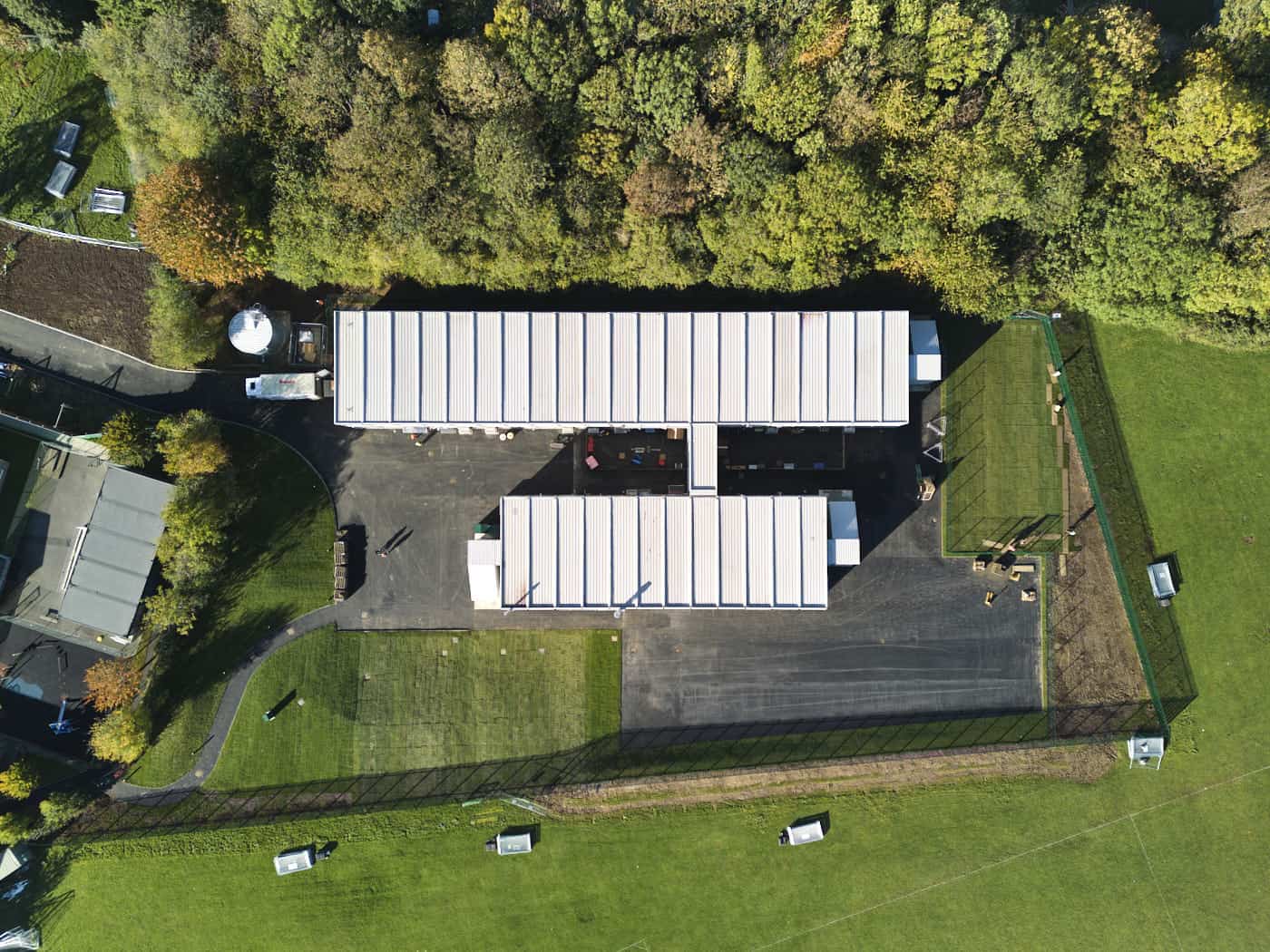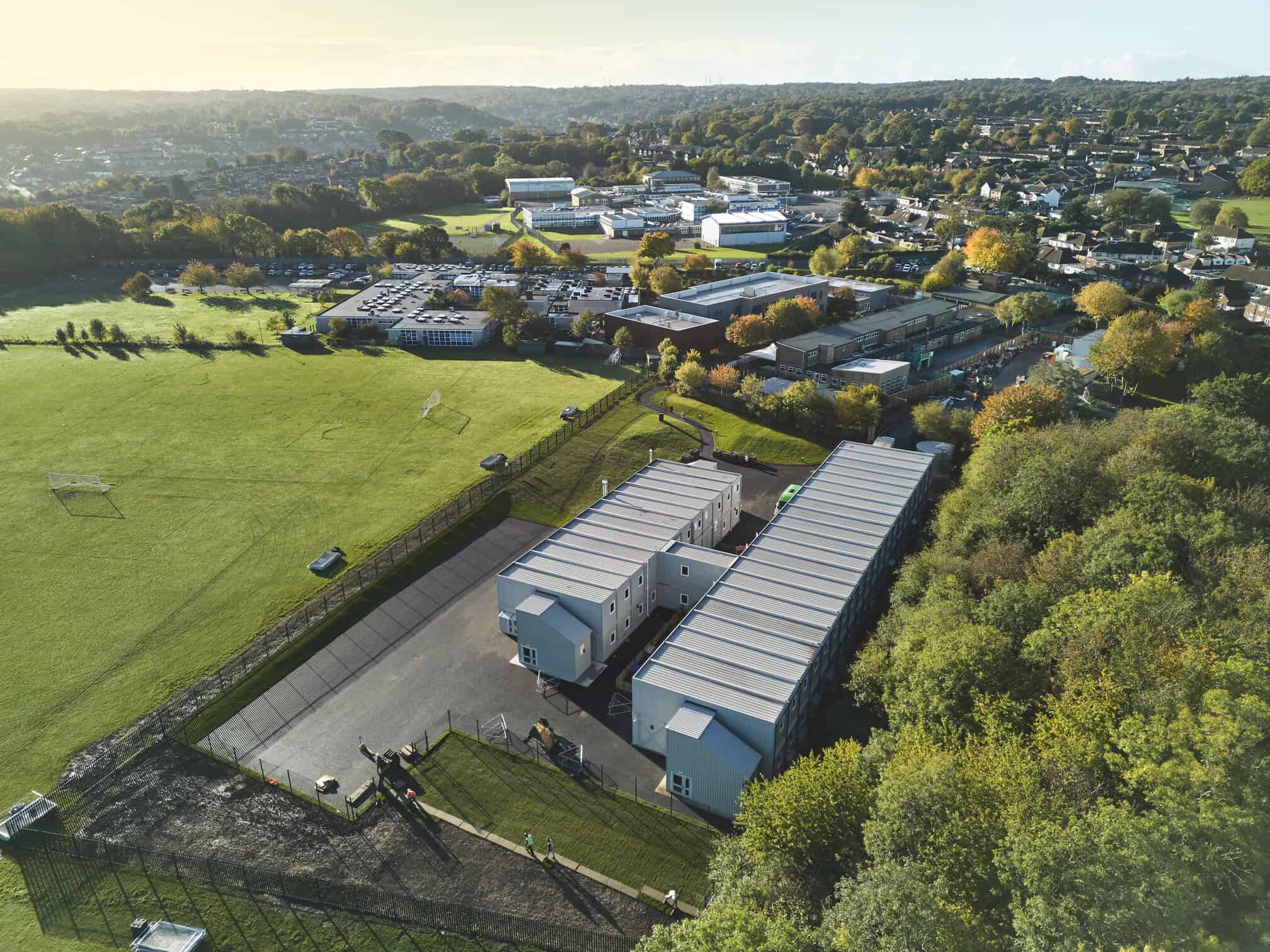Embodied carbon accounts for 20 per cent of the UK construction industry’s emissions – a figure that needs to be cut dramatically in order to meet Net Zero targets.
Enter modular construction companies: the key to a truly circular construction economy.
Why circular?
A circular economy means reusing, repurposing or recycling materials for as long as possible to extend their life and reduce waste.
This sustainable way of thinking has the potential to create a huge impact within the built environment. For example, studies by the UN have found that repurposing existing buildings generates between 50 to 70 per cent less carbon than building new ones – slashing emissions almost immediately.
Accelerating the circular economy within the built environment is crucial to quickly bring down carbon emissions, but what advantages do modular construction companies hold compared to traditional methods?
Precision construction leads to lower carbon
Modular construction companies are ahead of traditional construction when it comes to the circular economy. Precision, offsite manufacturing means less waste from the start as components are made to exact specifications. As a result, fewer offcuts or waste parts are created. Lean manufacturing processes additionally prioritise operational efficiency: maintaining high productivity and reducing waste. At Premier, we take this further, ensuring zero waste is sent to landfill.
But the circular economy isn’t just about the start of the building process – it needs to cover a building’s entire lifecycle. Modular construction companies achieve this through the unique, adaptable nature of modular units, which, whether they are short or long-term rental or permanent solutions, can be repurposed or recycled at end-of-life. This means that the embodied carbon within modular buildings never gets released, contributing to lowered emissions.
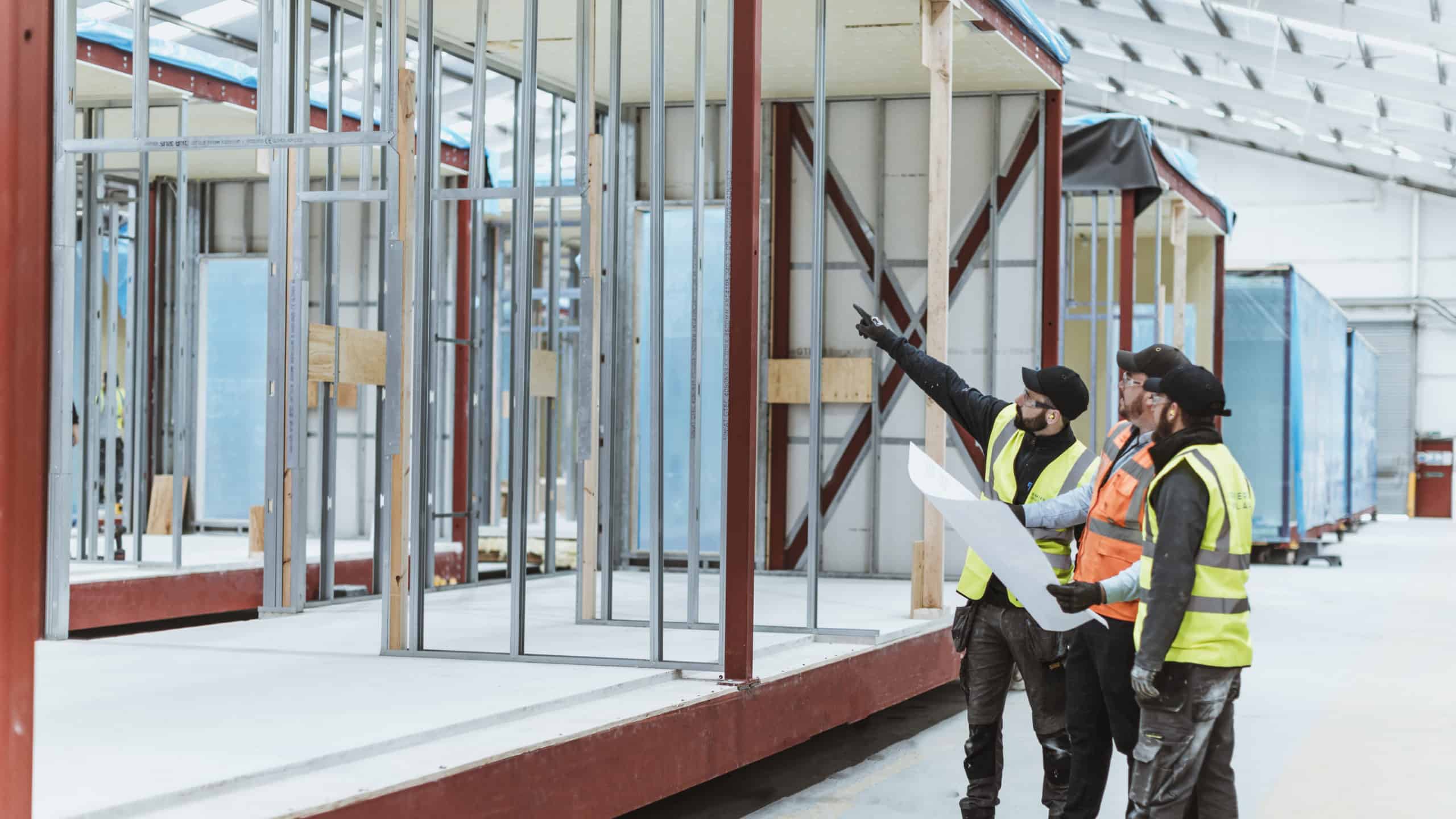
Tools for increased circularity
Modular construction companies are additionally able to take advantage of the latest technology within the construction industry to further promote circularity. These tools can be utilised from design stage to better inform decision-making, assess the best low-carbon materials and improve circularity across the wider supply chain.
One such tool includes building information modelling (BIM), which digitally depicts the design, assembly and ongoing maintenance required for a building to ensure sustainable design from the start, with components used in the most efficient manner.
Having this data to hand from the beginning of the design phase of a project means that risks can be flagged early and mitigation strategies can be put in place fast. It also allows stakeholders to track real data such as carbon emissions or waste against set targets and make improvements where necessary.
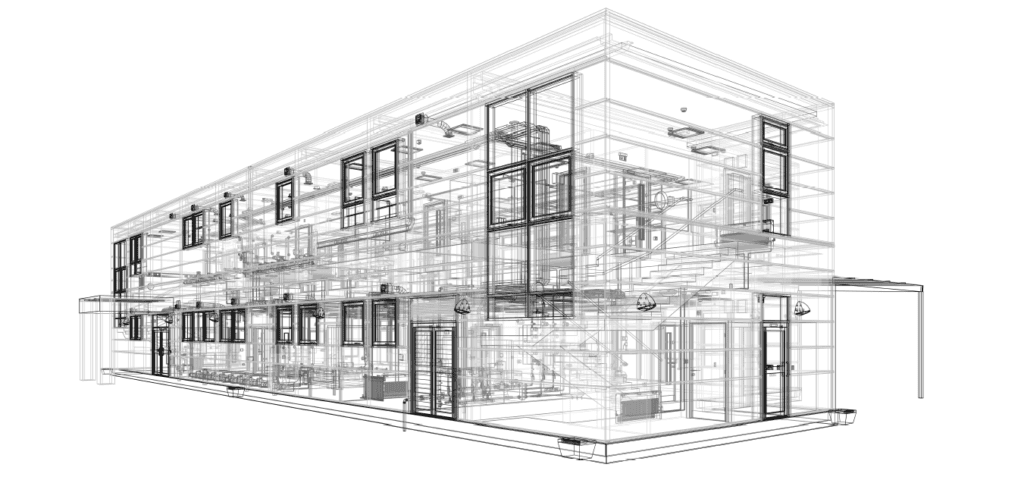
Modular buildings with all the mod-cons
Circular never means lesser when it comes to quality or innovation, and modular construction companies bring the advantage of integrating sustainable technologies into designs from stage one – demonstrating that this technology is not just for traditionally constructed buildings.
These include solar panels, green roofs, rainwater harvesting systems, ground source heat pumps and building management systems to optimise internal environments and save energy.
Combined with the flexible and reusable nature of modular buildings, these technologies have the power to change the built environment for the better; accelerating the way to a truly circular economy whilst simultaneously producing high quality short or long-term rental or permanent buildings that can be configured to meet every specification.
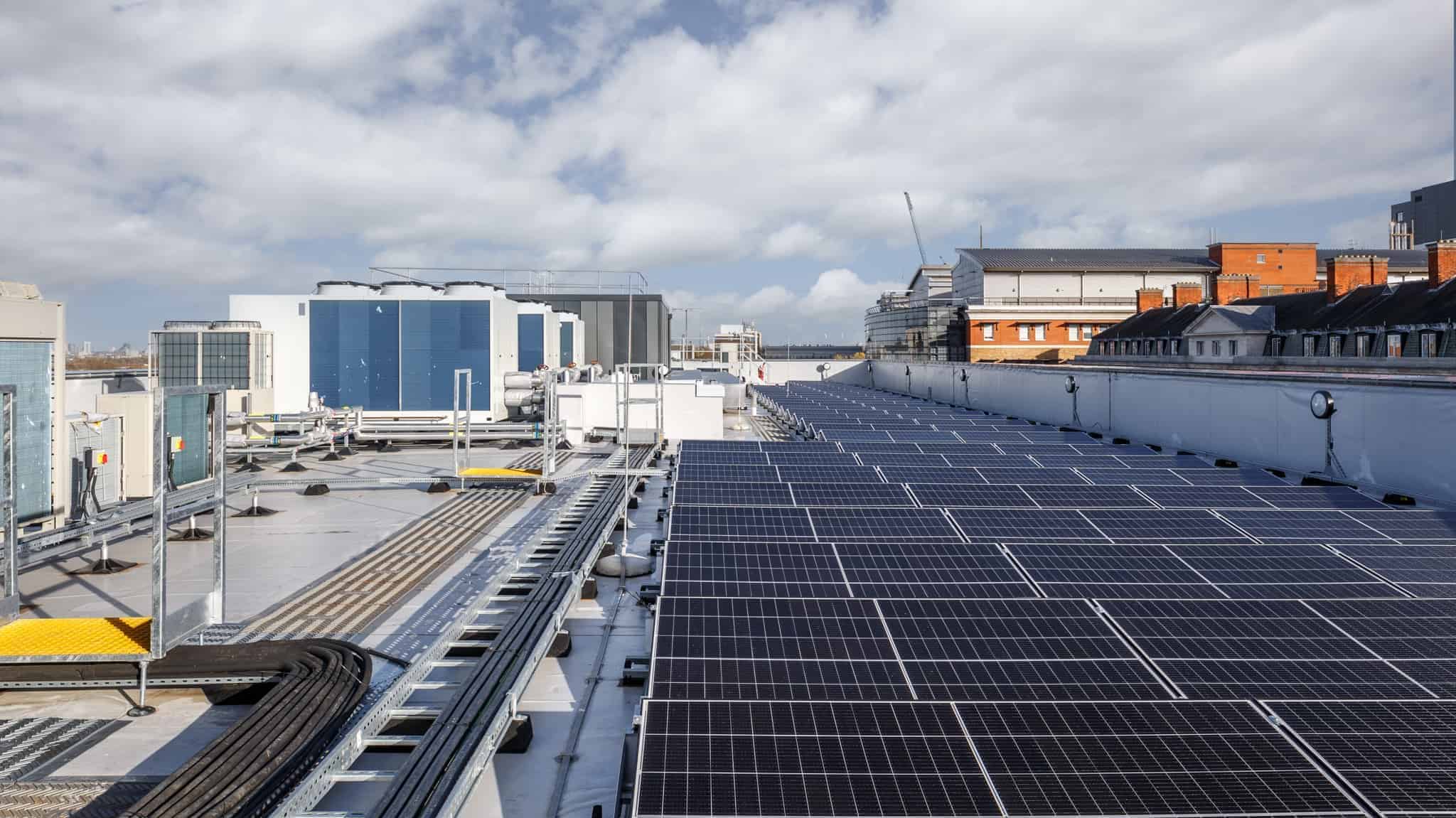
Construction that keeps on giving
Modular buildings aren’t just for now – they are future facing, providing high quality spaces throughout their lifecycle and sustainable excellence at end of life due to their circular nature.
Modular construction companies are pioneers when it comes to reusability; particularly when it comes to rental units. Once no longer needed, these units can either be reused on other areas of the site, reconfigured and deployed to a new site, or recycled entirely.
At Premier Modular, we are leaders at putting the circular economy into action. A recent project for the installation of rental units at Bradfields Academy utilised recycled modular units from existing stock. The units had been previously supplied to nine different clients across multiple sectors before being repurposed and transformed into a specialist educational facility – demonstrating the adaptability and circular nature of this method of construction.
Want to know how modular buildings could enhance the sustainable impact of your next project? Talk to one of our experts today.



